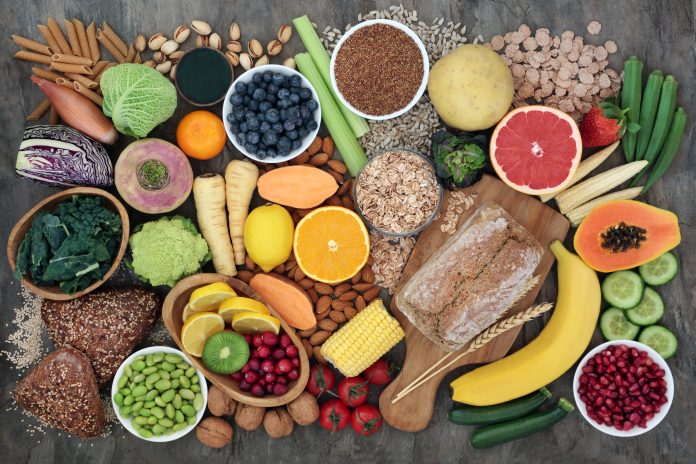
A trial in people at high risk of hereditary cancers has shown a major preventive effect from resistant starch, which is found in foods such as oats, breakfast cereal, cooked and cooled pasta or rice, peas, beans, and slightly green bananas.
“We hypothesize that resistant starch reduces production of secondary bile acids by the gut microbiome and so reduces the amount of DNA damage. Of course, this will need to be tested in future experiments,” John Mathers told Inside Precision Medicine. Mathers is lead author of the study, published in Cancer Prevention Research, and a professor of Human Nutrition at Newcastle University.
The international trial, known as CAPP2, involved almost 1,000 patients with Lynch syndrome. It found that a regular dose of resistant starch, also known as fermentable fiber, taken for an average of two years did not affect cancers in the bowel. But the supplement did reduce cancers in other parts of the body by more than half. This effect was particularly pronounced for upper gastrointestinal cancers including esophageal, gastric, biliary tract, pancreatic and duodenum cancers.
Notably, the effect lasted for 10 years after stopping taking the supplement.
While there have been a few encouraging studies that have provided glimmers of hope that supplements can help prevent cancer, most studies fail to find any effects or cannot be repeated.
The current trial is a double blind 10 year follow–up, supplemented with comprehensive national cancer registry data for up to 20 years in 369 of the participants.
“We found that resistant starch reduces a range of cancers by over 60%. The effect was most obvious in the upper part of the gut,” explained Mathers. “This is important, as cancers of the upper GI tract are difficult to diagnose and often are not caught early on.
“Resistant starch can be taken as a powder supplement and is found naturally in peas, beans, oats and other starchy foods. The dose used in the trial is equivalent to eating a daily banana, before they become too ripe and soft. The starch in bananas resists breakdown and reaches the bowel where it can change the type of bacteria that live there.
“Resistant starch is a type of carbohydrate that isn’t digested in your small intestine, instead it ferments in your large intestine, feeding beneficial gut bacteria—it acts in effect, like dietary fiber in your digestive system. This type of starch has several health benefits and fewer calories than regular starch.”
Previous research published as part of the same trial, revealed that aspirin reduced cancer of the large bowel by 50%.
Prof. Sir John Burn, from Newcastle University and Newcastle Hospitals NHS Foundation Trust, ran the trial with Mathers. Burn said “When we started the studies over 20 years ago, we thought that people with a genetic predisposition to colon cancer could help us to test whether we could reduce the risk of cancer with either aspirin or resistant starch.
“Based on our trial, NICE now recommend aspirin for people at high genetic risk of cancer. The benefits are clear—aspirin and resistant starch work.”
The team is now leading the international CAPP3 trial, with more than 1,800 people with Lynch syndrome enrolled, to determine whether smaller, safer, doses of aspirin can be used to help reduce cancer risk.
“Because cancers at these upper GI sites occur in the general population (as well as in people with Lynch syndrome), it will be important to discover whether the lower cancer risk that we’ve seen in people with Lynch syndrome also occurs in the general population,” Mathers said.











